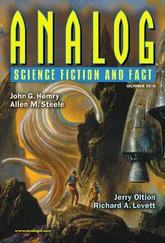Emily Jenkins - Toys Come Home
Здесь есть возможность читать онлайн «Emily Jenkins - Toys Come Home» весь текст электронной книги совершенно бесплатно (целиком полную версию без сокращений). В некоторых случаях можно слушать аудио, скачать через торрент в формате fb2 и присутствует краткое содержание. Год выпуска: 2011, ISBN: 2011, Издательство: Random House Children's Books, Жанр: Старинная литература, на английском языке. Описание произведения, (предисловие) а так же отзывы посетителей доступны на портале библиотеки ЛибКат.
- Название:Toys Come Home
- Автор:
- Издательство:Random House Children's Books
- Жанр:
- Год:2011
- ISBN:978-0-375-89345-2
- Рейтинг книги:5 / 5. Голосов: 1
-
Избранное:Добавить в избранное
- Отзывы:
-
Ваша оценка:
- 100
- 1
- 2
- 3
- 4
- 5
Toys Come Home: краткое содержание, описание и аннотация
Предлагаем к чтению аннотацию, описание, краткое содержание или предисловие (зависит от того, что написал сам автор книги «Toys Come Home»). Если вы не нашли необходимую информацию о книге — напишите в комментариях, мы постараемся отыскать её.
Toys Come Home — читать онлайн бесплатно полную книгу (весь текст) целиком
Ниже представлен текст книги, разбитый по страницам. Система сохранения места последней прочитанной страницы, позволяет с удобством читать онлайн бесплатно книгу «Toys Come Home», без необходимости каждый раз заново искать на чём Вы остановились. Поставьте закладку, и сможете в любой момент перейти на страницу, на которой закончили чтение.
Интервал:
Закладка:
“And then?”
“The Dryer can’t handle sneakers.”
“TELL ME WHAT HAPPENED!” StingRay shouts, and is surprised to see the towel’s edges curl up slightly in recoil.
For a moment, TukTuk doesn’t answer. Then she says: “The Dryer’s barrel got out of line. Started thumping. No one came. She went through the whole cycle. When the dad unloaded, the walrus was in shreds.”
StingRay is so shocked she can’t speak.
“He was nothing but fluff and scraps of plush,” says TukTuk. “The rest was clogging up the lint collector.” She sighs. “Maybe the threads that held him together were plastic. Maybe those threads melted. Or could be all that shaking was just too much.”
“Oh.”
“They threw what was left of him in the trash,” TukTuk finishes. “But he was gone long before that happened.”
Oh, oh, oh.
Bobby Dot is gone.
Bobby Dot will never, ever come back.
StingRay tries to feel sad, because she is pretty sure that’s how you are supposed to feel, but fear washes over her instead. Fear, like a cold wave that creeps up her tail and across her belly. Frrrrrr, Frrrrrr.
Because now StingRay knows something she really and truly did not know before. A life can be over.
“Was he your friend?” asks TukTuk gently. “I’m very sorry.”
“No,” says StingRay, truthfully. “But he was the Girl’s friend.”
. . . . .
The other toys take the shredding of Bobby Dot very calmly. “Too bad, too bad. But no one lasts forever,” squeaks one toy mouse, and the others take up her cry: “No one lasts forever! No one lasts forever!” until one of them spots a Cheerio dropped on the rug and scoots over to practice chewing it. The others follow to lend encouragement.
The rocking horse just nods seriously when StingRay tells him. And Sheep opens one eye from her slumber to ask, “Bobby who?”
“The walrus.”
“The walrus who used to be here a long time ago?”
“He was here yesterday morning.”
Sheep squints. “I thought it was a long time ago. What did you say happened with him?”
StingRay can’t face explaining it again. She changes the subject.
The toys don’t care much, but the Girl is bereft. When her parents tell her what happened to Bobby Dot, her face swells with all the crying. She whimpers “Walrus, walrus” before bed each night, and starts the morning with a solemn look on her face. Even after her health improves, she looks wan.
On the third day of this grief, the Girl picks up StingRay at bedtime and takes her to the high bed. She sobs a bit—“Walrus, walrus”—but snuggles her damp face against StingRay’s soft plush body and seems consoled.
The high bed! Specialness!
The Girl! Wants StingRay!
On the high bed!
Oh, specialness, specialness!
Being up there, cuddling and falling asleep, is the best feeling StingRay has ever had in her short life.
And yet, she wakes up in the middle of the night. Thinking about Bobby Dot. Thinking about how, now that he’s gone, she feels as if she’s supposed to have liked him. As if she should remember nice things about the departed.
Only, she didn’t like him.
Sometimes, she even wished he would disappear so she could sleep on the high bed instead of him.
And now he has.
Now StingRay—who thought Bobby Dot so horrid for saying “Better her than me” when Sheep was being thrown across the yard—now StingRay herself is thinking: “Better him than me.” Thinking it quite a lot, actually.
It is a bad thought.
But sleeping on the high bed is good.
Now, while the Girl is sad, StingRay is happy.
Does that make StingRay a bad person?
The joy, the guilt, the loss, and the relief: all these feelings toss around inside her in the night, while StingRay stares at the ceiling, cozy under the heavy arm of the sleeping Girl.
CHAPTER FOUR

You Can Puke on Me
The Girl’s next birthday is six weeks after the end of Bobby Dot.
Or maybe eight or nine weeks.
Or possibly four.
StingRay is not very good at measuring time. Though she wouldn’t want to admit that out loud.
“It’s been a bunch of weeks, anyway,” she thinks to herself. “I know it’s been a bunch of weeks.”
As a birthday surprise, the Girl’s parents buy her a new walrus—exactly the same model as before. It arrives in a cloud of pink tissue paper on the morning that is both the party and the Actual Day of Birth. The walrus is fat and walnut brown, just like Bobby Dot was, but its eyes have a flat unfocused look that make it seem more like furniture than someone to care about.
The Girl tries to love the new walrus. When she first receives it, she gives it a big hug, and in the days after, StingRay sees her cuddle it and talk to it and put necklaces on it, but never for very long. Always, after a couple of minutes, the walrus is flung to the floor in favor of something else. The Girl can’t even think of a name for it—just calls it No-Name Walrus.
Even when the toys are alone, No-Name Walrus never talks. It does not even smile or tilt its head like the rocking horse in the corner. Instead, it is silent and still. Like the orca and the pirates in the bathroom.
Maybe that is why the Girl can’t love it.
In fact, she seems angry at No-Name Walrus. She throws it across the room one day, sobbing, “You’re not the same. You’re not my walrus! Not my real Bobby Dot walrus.”
One day the Girl picks up No-Name Walrus and puts him in her backpack. “StingRay wants to come, too!” she calls down the stairs to her mother. “Can I bring StingRay?”
“We can’t exchange StingRay,” the mom calls back. “You’ve had her for a long time.”
“She wants to help me pick out something else. She wants to go to the store!” calls the Girl.
StingRay is not at all sure she does want to go to the store. She is glad she is not being exchanged, whatever that is, but the store could be full of cash registers that ding so loud your ears hurt,
and salespeople who put stickers on you,
and long ropes of licorice that people swing around their heads,
and dressing rooms with too many mirrors so you see yourself a million times.
These are ideas StingRay has gathered from hearing the Girl talk about stores, and she worries about them the whole time she and No-Name Walrus are in the backpack, which is dark and smells like old fruit. But in the end, when StingRay comes squinting out into the light, the store is bright and cheerful: a room full of wooden shelves stacked with puppets and plush animals, puzzles, art supplies, and board games.
“Sure we can exchange this little guy,” says the store clerk, checking the receipt the Girl’s mother offers her.
StingRay looks once more into No-Name Walrus’s furniture eyes and sees nothing. “Goodbye,” she whispers, just in case it can understand her.
Then the clerk tosses it gently into a bin of other, identical walruses, and suddenly StingRay cannot even tell which walrus she lived with for a week, and which are strangers.
It was always a stranger walrus, she supposes. It was never going to be anything else.
The Girl is allowed to pick out a toy the same price as No-Name Walrus was. She browses the shelves of stuffed animals, holding StingRay by the tail. StingRay has never seen so many toys.
It is kind of disturbing, actually.
“Hello there,” StingRay whispers to a woolly knit dolly with button eyes. “I like your blue dress.”
The dolly doesn’t answer.
“That’s great ruffly lace,” StingRay adds, friendly.
Читать дальшеИнтервал:
Закладка:
Похожие книги на «Toys Come Home»
Представляем Вашему вниманию похожие книги на «Toys Come Home» списком для выбора. Мы отобрали схожую по названию и смыслу литературу в надежде предоставить читателям больше вариантов отыскать новые, интересные, ещё непрочитанные произведения.
Обсуждение, отзывы о книге «Toys Come Home» и просто собственные мнения читателей. Оставьте ваши комментарии, напишите, что Вы думаете о произведении, его смысле или главных героях. Укажите что конкретно понравилось, а что нет, и почему Вы так считаете.









